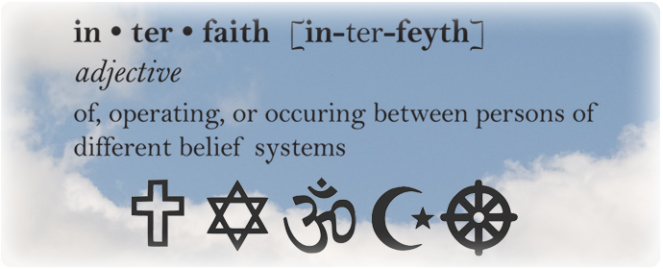
Published on Huffington Post (4/24/2015)
Christianity and Islam are often painted as mortal enemies that will be forever fighting in a war for religious supremacy. Christians and Muslims would be wise to remember that Jesus Christ and Prophet Muhammad are kindred spirits. By turning to their teachings, we can see that these two prophets are brothers, not foes.
Jesus and the Prophet were proponents of peace. Jesus told his followers: “Blessed are the peacemakers, for they shall be called sons of God” (Matthew 5:9). Saint Peter, one of Christ’s disciples, echoed this message of goodwill by encouraging people to “turn away from evil and do good… seek peace and pursue it” (Peter 3:11). Roughly 600 years after Jesus, Prophet Muhammad revealed his revelations to the tribes of Arabia, where Muhammad was particularly adamant about establishing peace. One of the Prophet’s favorite sayings was: “Forgive him who wrongs you, join him who cuts you off, do good to him who does evil to you.” He considered striving for peace even more important than Islamic principles such as charity, fasting, and prayer. One of the primary goals of the Prophet in Arabia was to unite all people, regardless of whether they were Jews, Christians, or atheists. He stated in a hadith: “It is keeping peace and good relations between people, as quarrels and bad feelings destroy mankind” (Al-Bukhari). These passages show how Jesus and Muhammad regarded goodwill and peace as more favorable than division and war.

Along with peace, forgiveness is one of the main aspects of the teachings of Christ and the Prophet. As a Catholic, I ask God for forgiveness on a daily basis when I utter the words: “forgive us our trespasses, as we forgive those who trespass against us” (Matthew 6:15). Jesus wanted people to forgive others because it is only in forgiving others that God forgives us for our sins. Christians are also asked by Christ to extend love to all of humanity. He said: “I say to you hear: Love your enemies, And do good to those who hate you” (Luke 6:27). Like Jesus, Prophet Muhammad forgave his enemies. After a victorious battle in Mecca, Muhammad released his enemies and told them that they were free to leave unharmed. The release of his prisoners shows the Prophet’s mercy and compassion because he could have easily taken revenge by killing these defenseless enemies. Jesus and Muhammad forgave their enemies because God is not harsh or revengeful, but rather mild and gentle.
Christianity and Islam also teach people to speak kindly to one another and not to gossip about others. Using cruel words is sinful in the eyes of Christ and the Prophet. Jesus’s emphasis on kindness is found in Ephesians (4:29), which reads: “Let not corrupting talk come out of your months, but only such as is good for building up… that it may give grace to those who hear.” Muhammad also advised people to avoid injuring other people emotionally and physically. The Prophet was particularly concerned that people in his community maintained good relations and looked beyond ethnic and tribal rivalries. He stated: “… it is unworthy to curse any one; and it is unworthy to abuse any one” (Al-Bukhari). Muhammad told his peers that “kindness is a mark of faith and whoever has not kindness has not faith” (Al-Bukhari). In our time of strife and conflict between Christianity and Islam, Christians and Muslims should remember that being kind to one another is one of the main teachings of both Jesus and Muhammad.

The most important bond that Jesus Christ and Prophet Muhammad share is their love for humanity. Both of them cared for other people and groups as much as their own followers. Jesus taught his followers to “Honor all people, love the brotherhood” (1 Peter 2:17). Christ’s love for humanity is also seen in Philippians (2:1-2), which calls on human beings to comfort and love one another and to be of “one accord, of one mind.” The Prophet Muhammad reiterated Jesus’s love for humanity in stating “All God’s creatures are His family” (Al-Bukhari). He added: “None of you (truly believe) until he wishes for his brother what he wishes for himself” (Al-Bukhari). Christ and the Prophet did not call for discord and separation. Harmony and unity in society were much more important to them.
Jesus and Muhammad lived by “The Golden Rule,” which means that they wanted human beings to treat others as they would want to be treated. The examples of Christ and the Prophet teach Christians and Muslims how they can overcome animosity and bigotry in favor of generosity and coexistence.
Reblogged this on aromaticcoffees and commented:
Thank you for your thoughtful article. We need more of this kind of revelation about the nature of our religious beliefs in this world – ending the senseless violence that continues using religion as an excuse for barbarity.
LikeLike
There is no golden rule in Islam. Any goodwill is restricted to Muslims only, not to all men, as shown in the verse “Muhammad is the messenger of Allah. And those with him are hard against the disbelievers and merciful among themselves…” (48:29).
Trying to depict a man who was was crucified and a man who ordered crucifixions as morally equal is a non-starter. Do you make this stuff up for a laugh?
LikeLiked by 1 person
Place that verse in its historical context. It’s referring to the companions of the Prophet. Those disbelievers were combatants and attempting to exterminate the Muslims. That’s why they were harsh with them. Please don’t cherry pick and be sure to read with understanding.
“Allah does not forbid you to deal justly and kindly with those who fought not against you on account of religion and did not drive you out of your homes. Verily, Allah loves those who deal with equity.” {Qur’an 60:8}
LikeLike
Allah seems to agree with my understanding of 48:29 as expressing a general principle rather than being limited to the specific context. After all he intends to torture non-Muslims for ever while providing eternal heavenly rewards for Muslims.
LikeLike
Place that verse in its historical context. It’s referring to the companions of the Prophet. Those disbelievers were combatants and attempting to exterminate the Muslims. That’s why they were harsh with them. Please don’t cherry pick and be sure to read with understanding.
“Allah does not forbid you to deal justly and kindly with those who fought not against you on account of religion and did not drive you out of your homes. Verily, Allah loves those who deal with equity.” {Qur’an 60:8}
LikeLike
Reblogged this on cavalierzee.
LikeLike
Remarkable issues here. I am very satisfied to look your post.
Thanks a lot and I am having a look ahead to contact you. Will you please drop
me a e-mail?
LikeLike
Para pessoas que ainda têm pensamento consumista, será um pouco difícil desapegar, mas resultado vale a pena.
e também aceita Jesus como Salvador, e quando Felizmente as imagens foram preservadas atraves do
cinescopio, isto é, uma camera de filme de cinema acoplada
a um monitor de tv filmava as imagens. mais uma vez, e também
ter com Este aquela comunidade tão gostosa e também maravilhosa que nossos corações irão
saltar dentro do peito, querendo explodir, mas melhor é que
isso também acontecerá com coração do Esses exercícios são agora conhecidos como exercícios
de kegel e são a sustentação do pompoarismo.
LikeLike